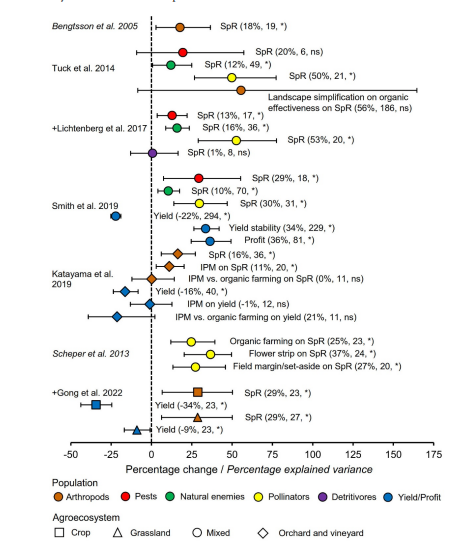A partly-funded SHOWCASE scoping review led by project partner HUN-REN Centre for Ecological Research, in addition to University of Freiburg, University of Hohenheim, Leuphana University, Museum Koneig, University of Würzburg and Westlake University, provides a global overview of meta-analyses focused on the effects of land-use extensification and diversification on arthropod biodiversity in agroecosystems. The study, featured in Defining Agroecology: A Festschrift for Teja Tscharntke, found that most measures aimed at reducing management intensity and increasing ecosystem complexity positively impacted arthropod species richness. However, the effects varied depending on the arthropod functional group, type of ecosystem and landscape context.
The review highlights that agricultural intensification, characterised by heavy tillage, high agrochemical inputs and field simplification, is a major driver of arthropod population declines. Various conservation interventions, such as organic farming, flower strips and reduced tillage, were examined. While these measures generally support arthropod diversity, they often come with trade-offs, such as lower crop yields. The review stresses the importance of combining different measures for more effective conservation outcomes and calls for bridging the gap between scientific research and policy to promote transformative changes in the European food system.
The findings underscore the necessity of context-specific approaches in agroecological practices, particularly in light of the global decline in arthropod populations due to habitat loss, degradation and climate change. The study also suggests that future research should focus on identifying tipping points in grazing intensity, improving the quality of meta-analyses, and exploring the potential of diverse farming systems like silvo-arable systems and vineyard inter-row vegetation management to enhance biodiversity without compromising yield.
Read the full study here.
Image: Forest plot showing the main findings of meta-analyses testing organic farming on arthropod diversity (or yield and profit) expressed as percentage change/percentage explained variance.
